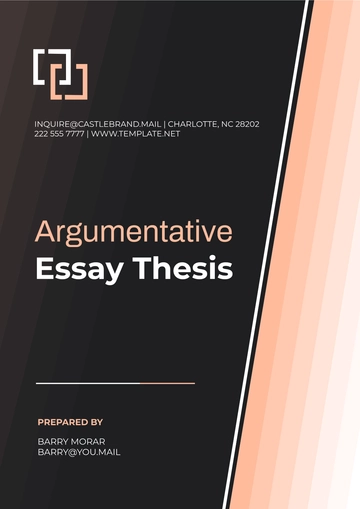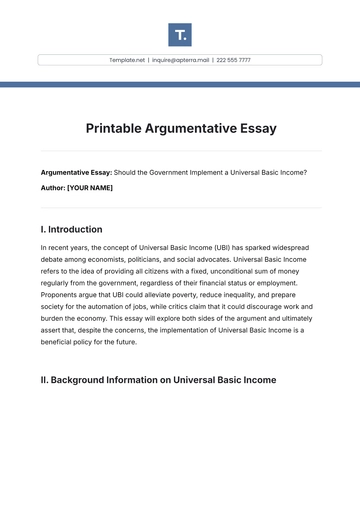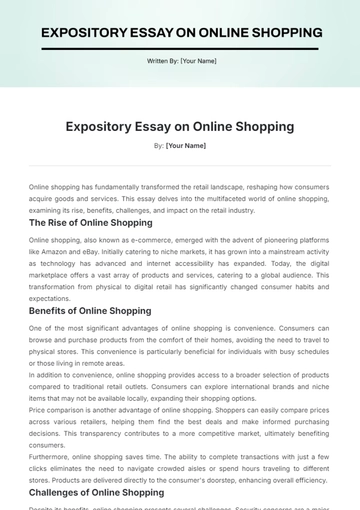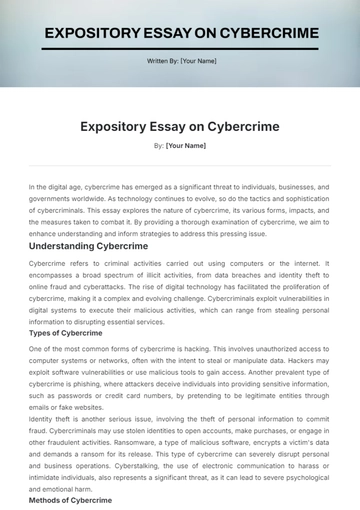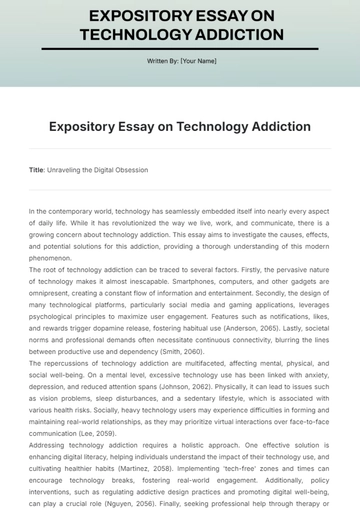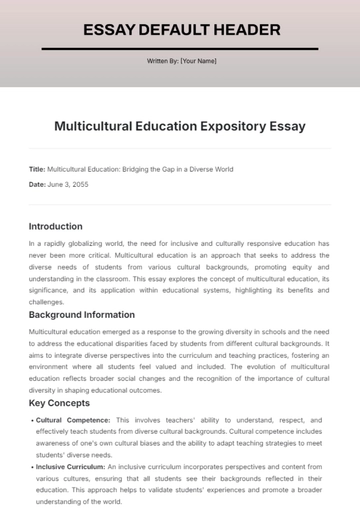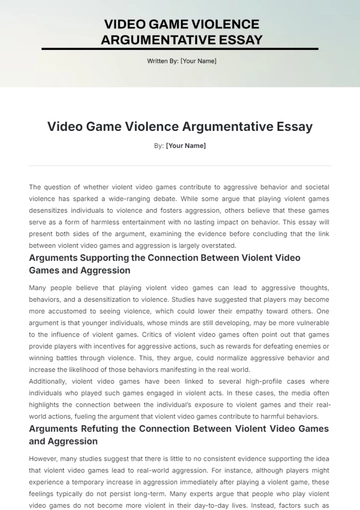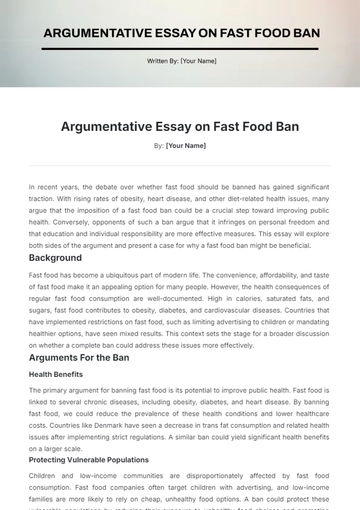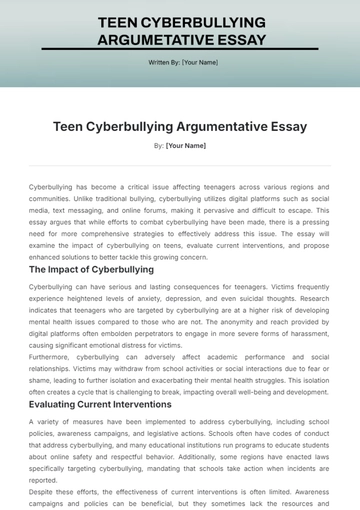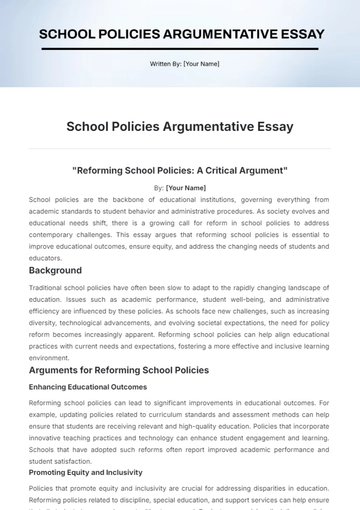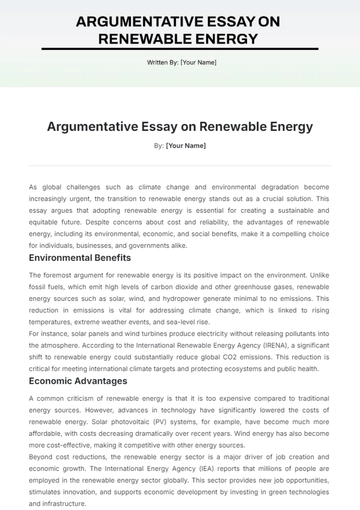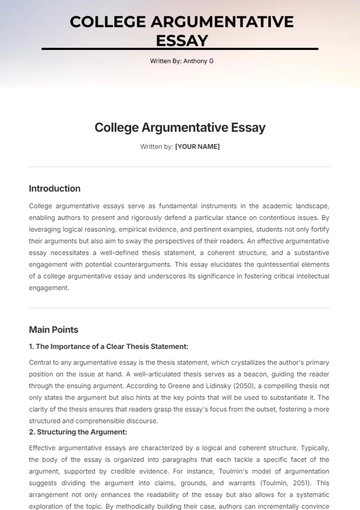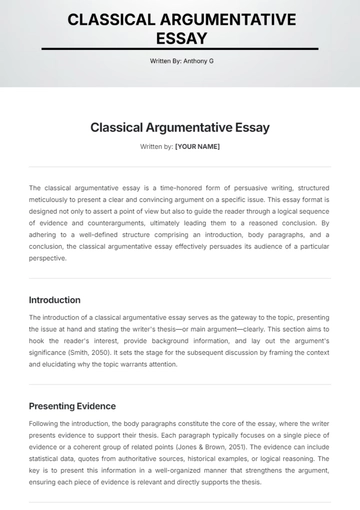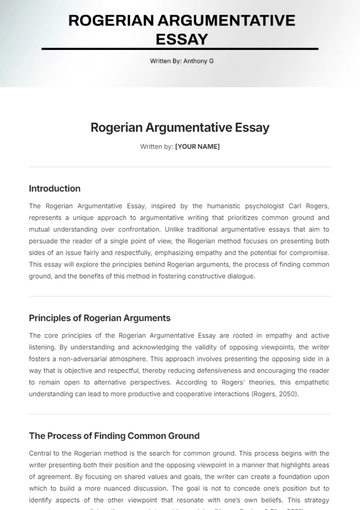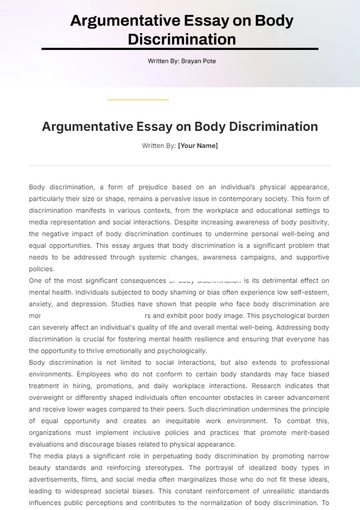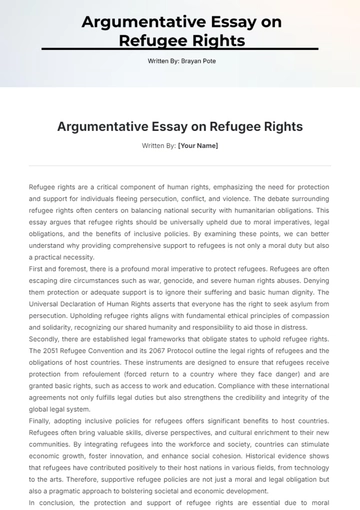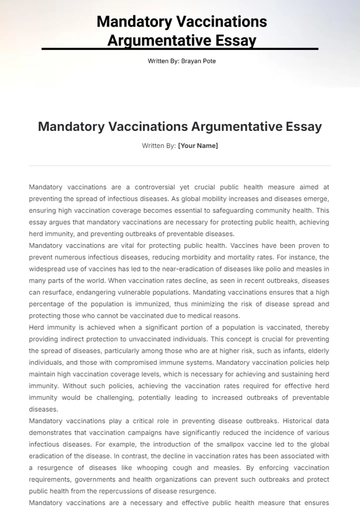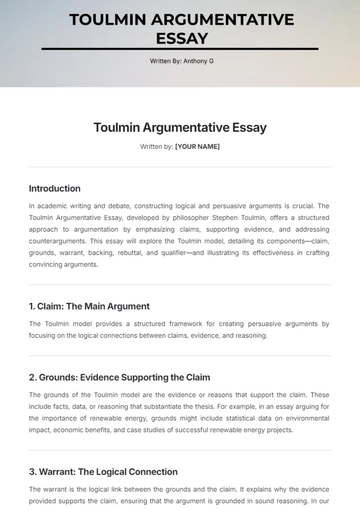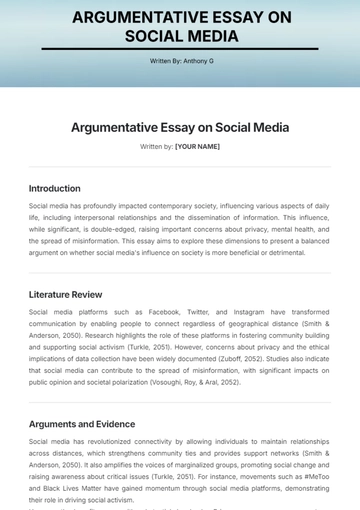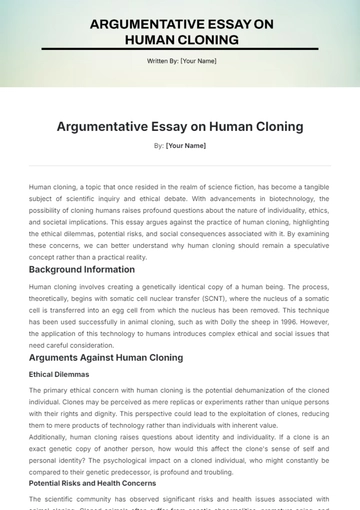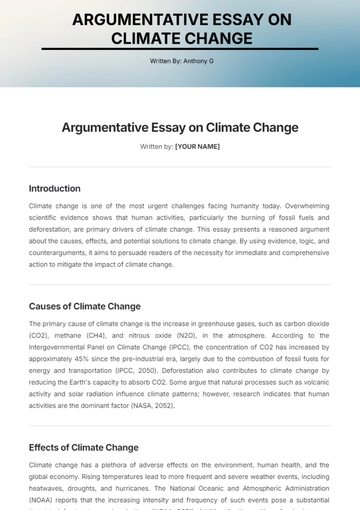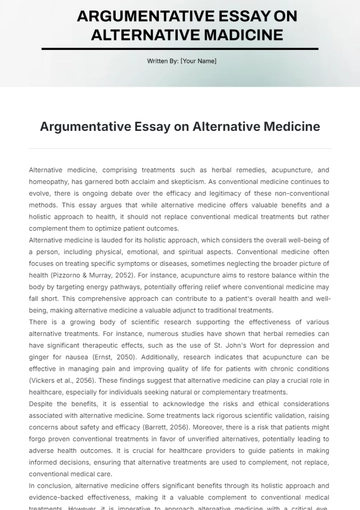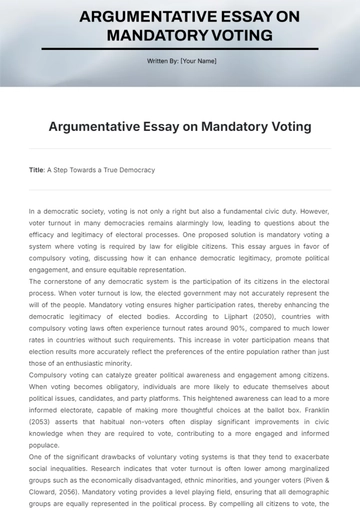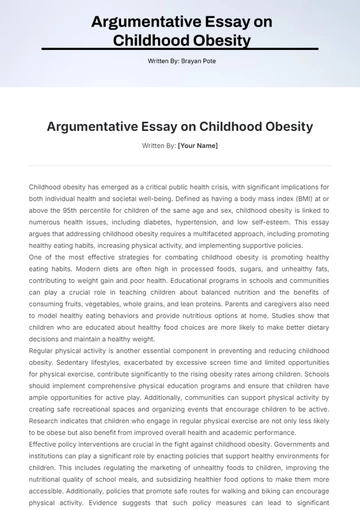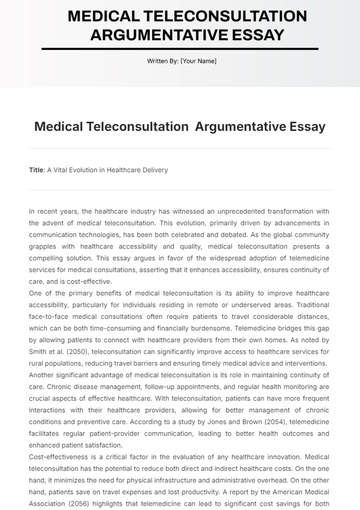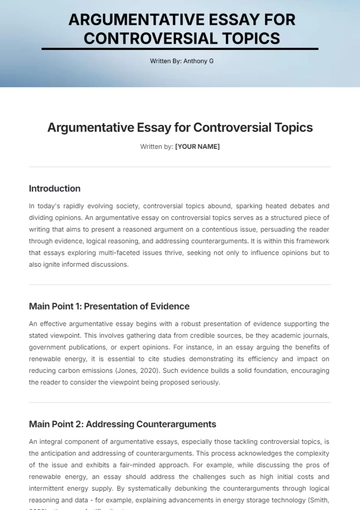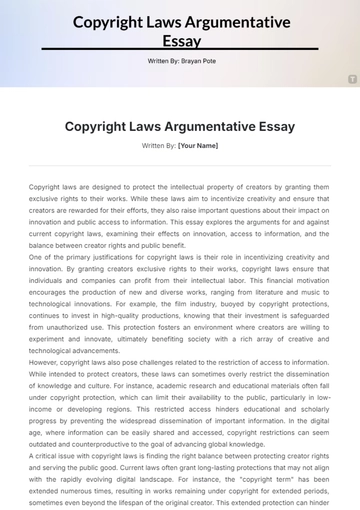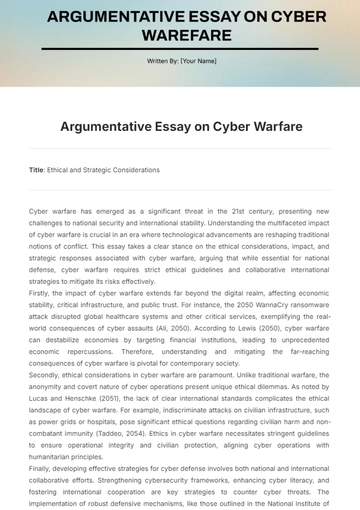Free Argumentative Essay on Fast Food Ban
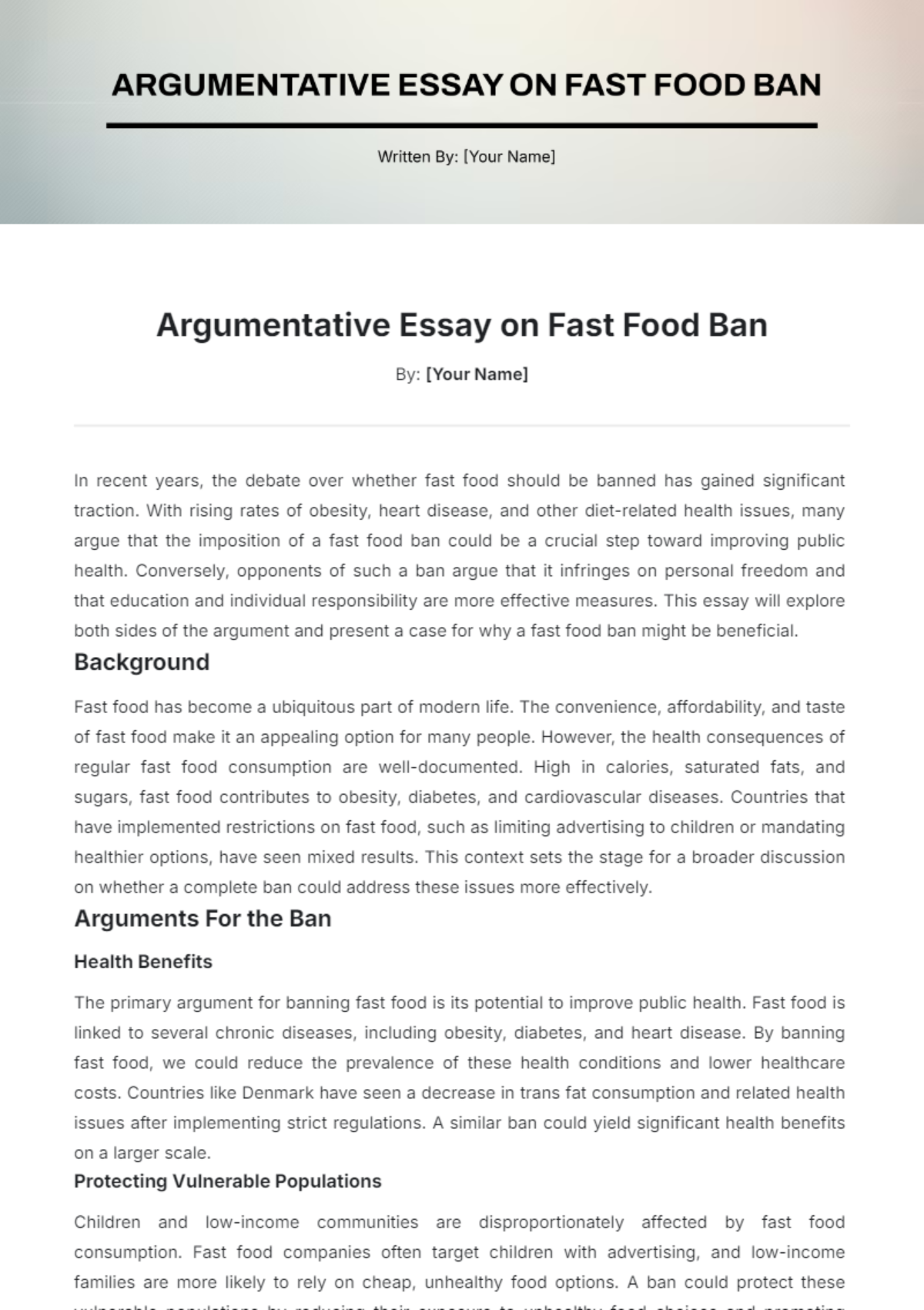
By: [Your Name]
In recent years, the debate over whether fast food should be banned has gained significant traction. With rising rates of obesity, heart disease, and other diet-related health issues, many argue that the imposition of a fast food ban could be a crucial step toward improving public health. Conversely, opponents of such a ban argue that it infringes on personal freedom and that education and individual responsibility are more effective measures. This essay will explore both sides of the argument and present a case for why a fast food ban might be beneficial.
Background
Fast food has become a ubiquitous part of modern life. The convenience, affordability, and taste of fast food make it an appealing option for many people. However, the health consequences of regular fast food consumption are well-documented. High in calories, saturated fats, and sugars, fast food contributes to obesity, diabetes, and cardiovascular diseases. Countries that have implemented restrictions on fast food, such as limiting advertising to children or mandating healthier options, have seen mixed results. This context sets the stage for a broader discussion on whether a complete ban could address these issues more effectively.
Arguments For the Ban
Health Benefits
The primary argument for banning fast food is its potential to improve public health. Fast food is linked to several chronic diseases, including obesity, diabetes, and heart disease. By banning fast food, we could reduce the prevalence of these health conditions and lower healthcare costs. Countries like Denmark have seen a decrease in trans fat consumption and related health issues after implementing strict regulations. A similar ban could yield significant health benefits on a larger scale.
Protecting Vulnerable Populations
Children and low-income communities are disproportionately affected by fast food consumption. Fast food companies often target children with advertising, and low-income families are more likely to rely on cheap, unhealthy food options. A ban could protect these vulnerable populations by reducing their exposure to unhealthy food choices and promoting healthier eating habits.
Encouraging Healthier Alternatives
Banning fast food could encourage individuals and businesses to adopt healthier eating habits and offer better food choices. It could drive innovation in the food industry, leading to the development of healthier, more nutritious options. For instance, if fast food restaurants were required to offer healthier menus, it could lead to a broader shift in eating habits across the food industry.
Arguments Against the Ban
Personal Freedom
Opponents of a fast food ban argue that such a measure infringes on personal freedom. In democratic societies, individuals should have the right to make their own choices, including the decision to consume fast food. A ban could be seen as an overreach of government authority, potentially leading to resistance and non-compliance.
Economic Impact
The fast food industry is a significant economic driver, providing jobs and supporting local economies. A ban could lead to job losses and economic decline in communities reliant on fast-food establishments. Moreover, the economic burden of enforcing such a ban could outweigh its potential health benefits.
Effectiveness and Alternatives
Critics argue that a ban might not be effective in addressing the root causes of unhealthy eating. Instead of banning fast food, efforts could be directed toward education, promoting healthier food choices, and improving access to nutritious options. Countries that have implemented educational campaigns and subsidies for healthy foods have seen improvements in public health without resorting to outright bans.
Refutation
While concerns about personal freedom and economic impact are valid, they do not outweigh the potential public health benefits of a fast food ban. Personal choice should not come at the cost of widespread health issues that strain healthcare systems and affect the quality of life. Furthermore, the economic impact of a ban could be mitigated by providing support for workers transitioning to new roles and by stimulating growth in the healthier food sector. Addressing these concerns through thoughtful policy design and support measures can help balance the need for public health improvements with economic and personal freedoms.
In conclusion, while the debate over a fast food ban is complex, the potential health benefits and protection of vulnerable populations present a strong case for considering such a measure. The arguments against the ban, including concerns about personal freedom and economic impact, are important but can be addressed through careful policy implementation and support systems. By prioritizing public health and encouraging healthier eating habits, a fast food ban could be a significant step towards a healthier society. Further research and pilot programs could provide valuable insights into the effectiveness of such a ban and guide its implementation to maximize benefits and minimize drawbacks.
- 100% Customizable, free editor
- Access 1 Million+ Templates, photo’s & graphics
- Download or share as a template
- Click and replace photos, graphics, text, backgrounds
- Resize, crop, AI write & more
- Access advanced editor
The Argumentative Essay on Fast Food Ban Template from Template.net offers an editable and customizable format for crafting a compelling and structured essay. Tailored for students and professionals, this template simplifies the process of presenting strong arguments for or against fast food bans. With its flexible design, you can easily adapt the content to your specific viewpoint and style, ensuring a polished and persuasive final essay.
